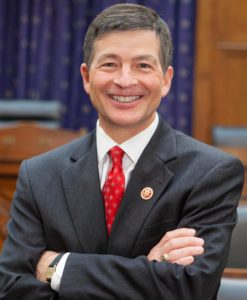President Donald Trump signed a Congressional resolution on May 21 which negates guidance on auto loans from the Consumer Financial Protection Bureau.
The resolution withdraws 2013 guidance from the CFPB which aimed at preventing discriminatory markups on indirect loans made by car dealers under the Equal Credit Opportunity Act. It passed the House earlier in May 234 to 175, and the Senate in April 51 to 47.
“I thank the President and the Congress for reaffirming that the bureau lacks the power to act outside of federal statutes,” said CFPB Acting Director Mick Mulvaney. “As an executive agency, we are bound to enforce the law as written, not as we may wish it to be. In this case, the initiative that the previous leadership at the bureau pursued seemed like a solution in search of a problem. Those actions were misguided, and the Congress has corrected them.”
The resolution also “clarifies that a number of bureau guidance documents may be considered rules for purposes of the CRA,” the CFPB said in a statement, and it will submit any such documents to Congress for review. The bureau will also review other ECOA requirements.
Critics of the guidance said it was an attempt to circumvent a prohibition in the Dodd-Frank act which prevented the CFPB from regulating auto lenders. It essentially said that indirect auto lenders would be written up over discriminatory actions made by the dealership.
Under the guidance, the CFPB had levelled actions against Ally Bank and Honda, among others.

“Thanks to the hard work of Republicans in Congress, today is a good day for American consumers,” said Rep. Jeb Hensarling (R-Texas), chair of the House Financial Services Committee. “I look forward to continuing to work with President Trump, Acting Director Mulvaney, and my colleagues in Congress to ensure the bureau, as well as all other federal regulatory agencies, are held accountable for their actions and act in a transparent manner.”
Congress revoked the guidance using the Congressional Review Act, which allows for a simple majority of Congresspeople in both the House and the Senate to repeal federal guidance. It also forbids the concerned agency from attempting to enact a substantially similar rule after the repeal.
This is the second time CRA has been invoked to reverse CFPB policy. In November, Trump signed a resolution negating the bureau’s ban on forced arbitration clauses.


